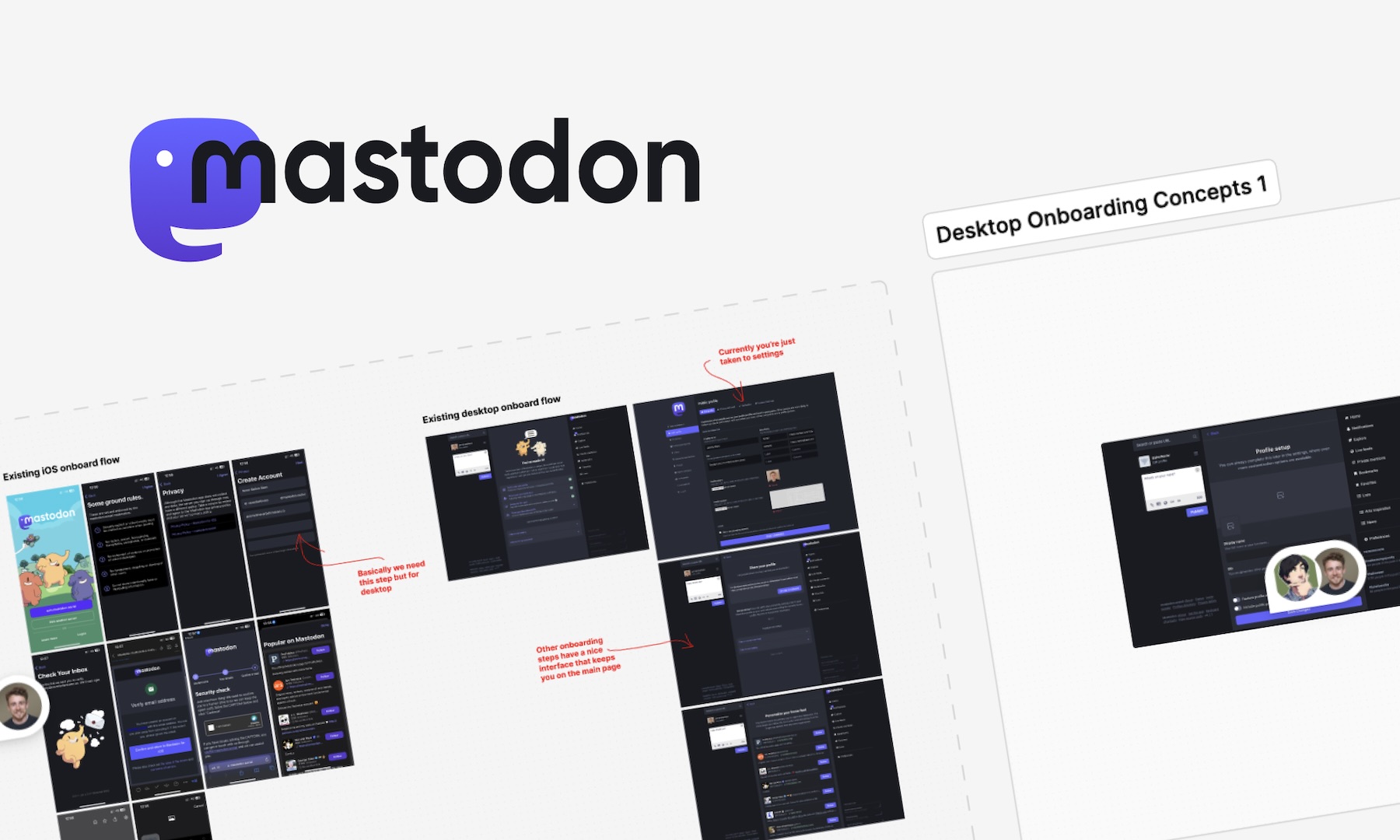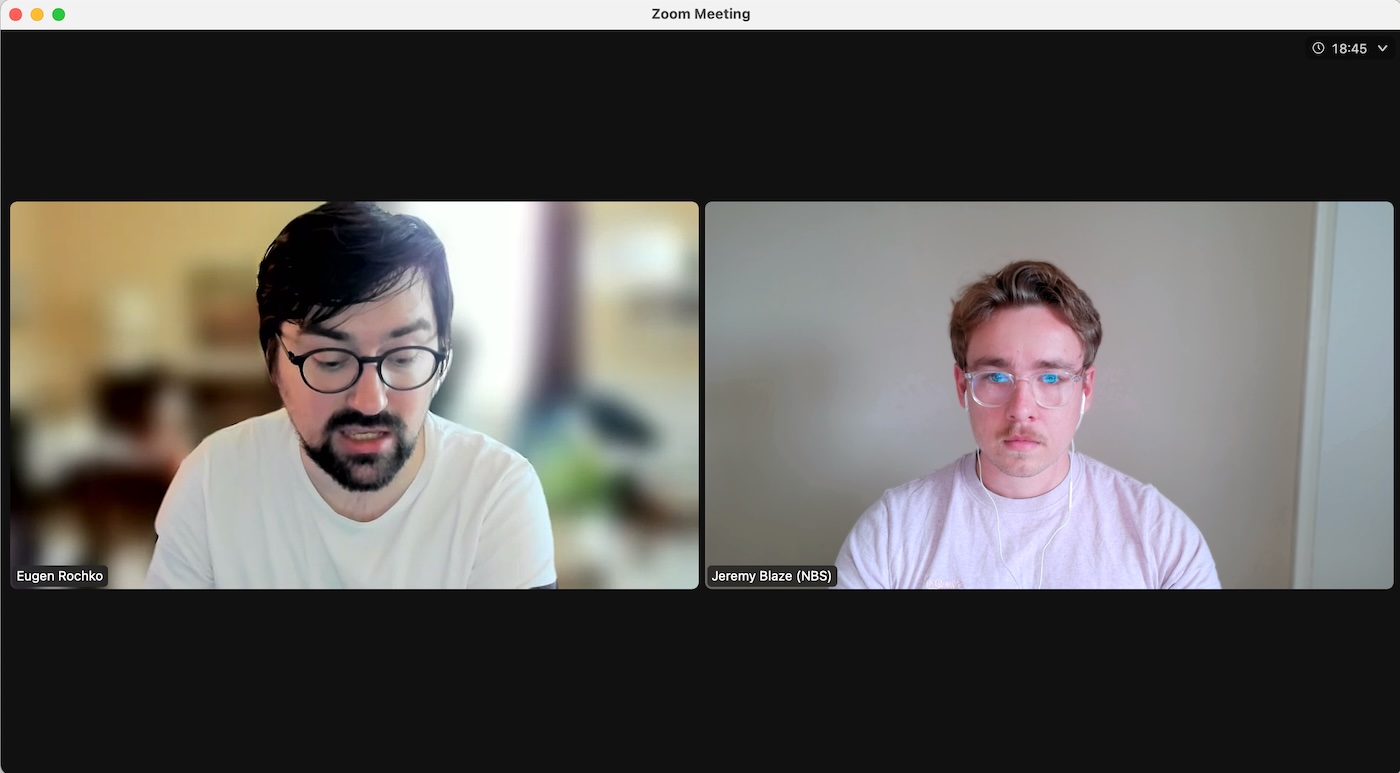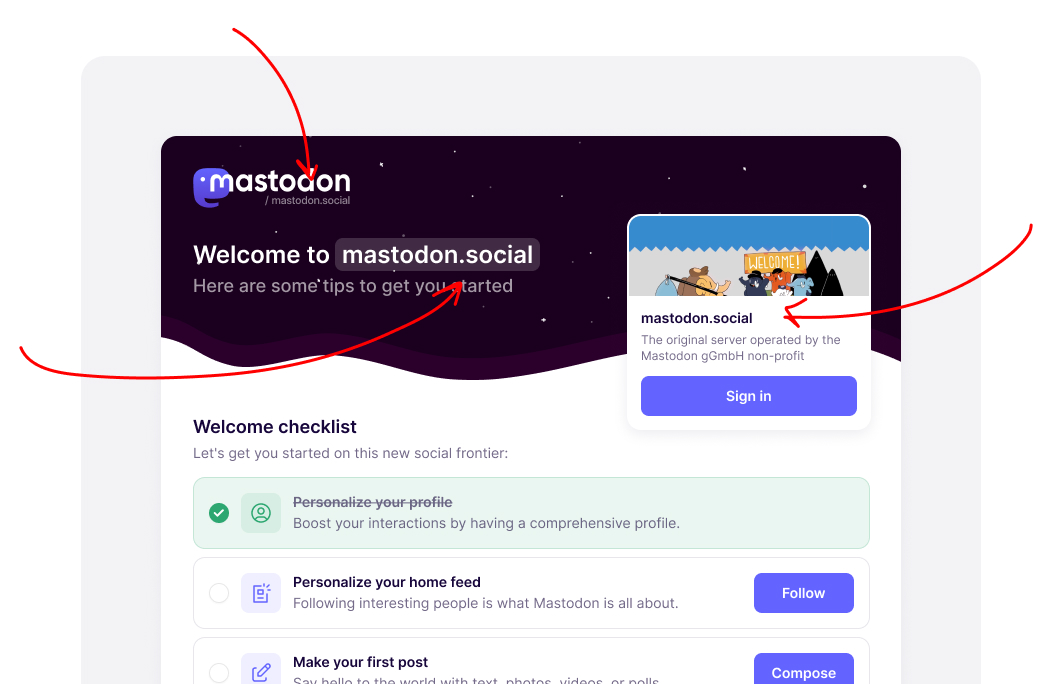We helped Eugen Rochko, founder of Mastodon, fix their onboarding experience



Late last year, I had the opportunity to work closely with Eugen Rochko, Mastodon’s founder, to help tackle a problem unique to federated social networks: users kept forgetting which server (or "instance") they had signed up on.

Mastodon is an open-source social network with more than 10 million users across thousands of independently run servers. This decentralization is one of its biggest strengths; however, it also creates unique UX challenges. Unlike a centralized platform where there's only one "home," Mastodon users pick a server when signing up — and many new users, especially those unfamiliar with the federated model, found it confusing to remember where their account lived.
The issue would surface when users tried to log back in or invite friends. They knew they had a Mastodon account but often couldn’t recall which domain they had joined, leading to frustration and, in many cases, drop-off.
We explored a range of possible solutions to this problem. Some ideas included:
But the solution we ultimately landed on was to overhaul the new user experience (NUX), starting with one of the most persistent touchpoints: email.
Instead of sending a generic welcome email, we redesigned it to make the server domain unmistakably clear — and to reinforce it through friendly, repeated prompts. The idea was to anchor users to their server from day one.
We also designed reminder emails and login support flows that helped users reconnect with their server more easily if they ever forgot.

Email was just one piece. We also revisited parts of the onboarding experience itself to:

I ran some workshops with Eugen and some of their development team to explore some possible approaches for improving the on-platform sign up experience.
Throughout the project, I collaborated directly with Eugen, iterating on strategy, wireframes, and final designs. This opportunity was an absolute pleasure. I partner with a lot of CEOs and founders, and Eugen really stood out as both a sharp and purpose-driven leader who's building a unicorn-scale software company on a non-profit budget. He makes even the most lean founder look flush.
Mastodon’s decentralized nature is part of what makes it powerful. By improving the early user experience, we aimed to help more people stay connected to the communities they chose and, ultimately, strengthen the network as a whole.
